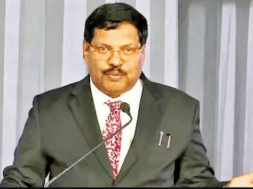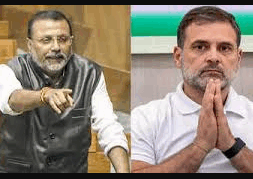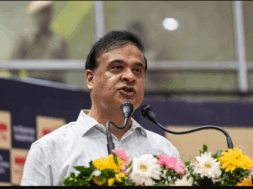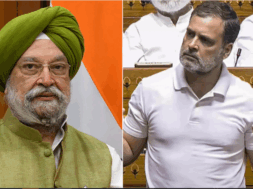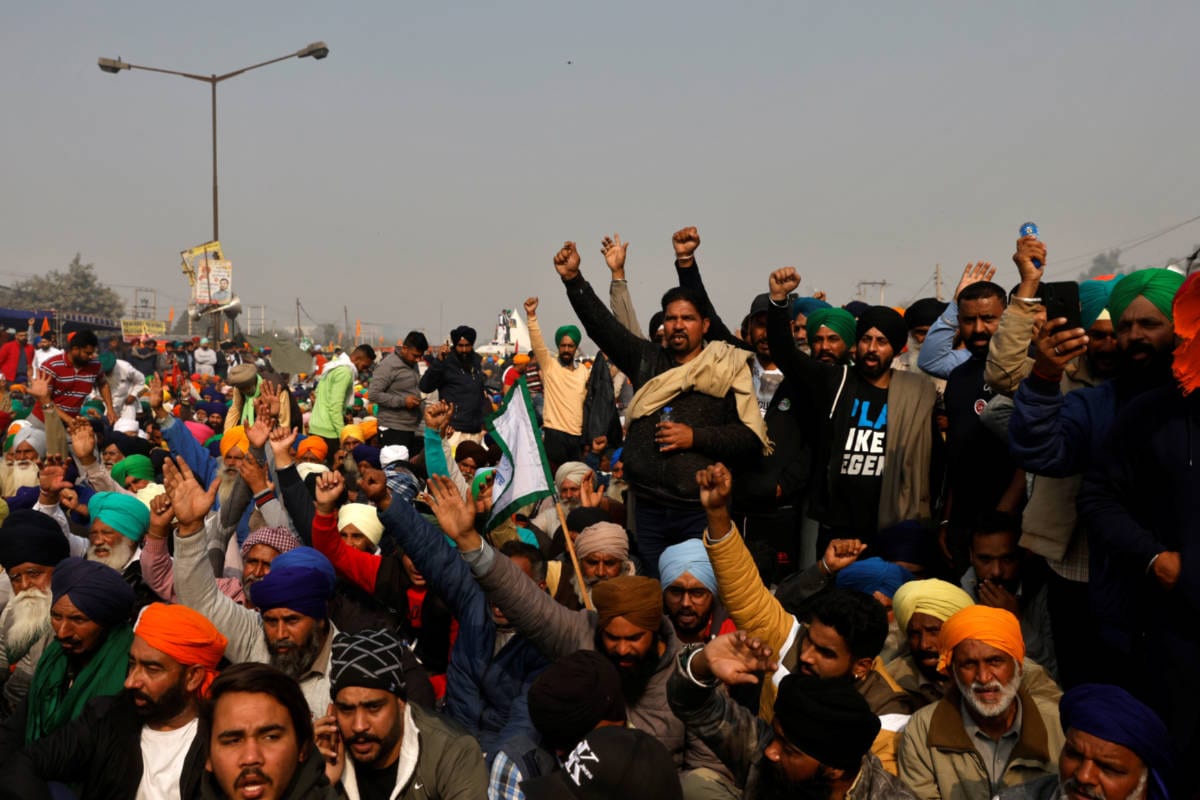
Farmers – Centre Meeting Inconclusive, “Consensus” on 2 of the 4 Issues, to Meet Again on January 4
Manas Dasgupta
NEW DELHI, Dec 30: The talks between the leaders of the farmers and the three union ministers ended on Wednesday on a “positive note” having reached “consensus” on two out of four issues with a decision to meet again on January 4 for the seventh round of talks, the union agriculture minister Narendra Singh Tomar said.
“Consensus has been reached on two issues out of four. The next meeting will be held on January 4. The talks were held in a good environment and ended with a positive note,” Tomar told media persons after the meeting.
The sixth round of talks which was originally scheduled to be held on December 9 but was cancelled as the two sides could not reach to an agreed agenda, was held after a gap of 22 days but proved the centre’s earlier claim of “reaching to a decisive settlement” wrong.
Union minister Som Prakash — who has been part of the government’s three-member team for negotiations with the farmers had said before the start of the sixth round that Wednesday’s meeting would be a decisive one and would ensure that the farmers returned home lifting the blockade of Delhi’s borders.
“Today’s meeting with farmers will be decisive”. “We want them to celebrate New Year at their homes, with their family and we are going into the meeting with an open heart and mind. The government will try to resolve the issue so that people can go back to their homes,” Som Prakash had said.
But a final decision was elusive and sources close to the farm leaders said Wednesday’s meetings ended with only discussing and reaching consensus only on fringe issues while the main contentious points, the repeal of the three contentious acts and legalization of the Minimum Support Price (MSP) are yet to be discussed.
Sources said the government had agreed to address farmers concerns on Electricity Bill and exclusion of farmers from Air Quality Management Ordinance, the two of the four issues of the agenda for the meeting sent by the farmers’ unions to the government.
Tomar also confirmed that the two sides have arrived at an agreement on Electricity Bill and Air Quality Management Ordinance under which the farmers surrounding Delhi were to be punished for stubble burning causing deterioration in air quality in the national capital.
He said discussions on the three agriculture laws and the MSP as a guarantee for farmers will continue in the next meeting scheduled for January 4.
The union sources said the three central ministers Tomar, railway minister Piyush Goyal and Som Prakash, rejected the demand to repeal the three agricultural laws and instead proposed to set up a committee to examine the new farm laws. The meeting also discussed the possibility of a law on guaranteeing minimum prices for farm prices but could not reach an agreement. A government official also explained the pros and cons of a law on MSP. The government argued that a law making MSP compulsory for even private traders, essentially prohibiting sale of any farm produce below state-set prices could spark chaos in markets.
Tomar also reportedly told the meeting that the private traders may not buy at MSP rates if doing so wouldn’t be profitable for them.
The government also indulged in lunch diplomacy with the three union ministers joining the farm leaders to share their “langar” food in the lunch taken in-between the meeting to present a picture of bonhomie amid the tough negotiations.
The three farm laws passed in September essentially change the way India’s farmers do business by creating free markets, as opposed to a network of decades-old, government controlled marketplaces, allowing traders to stockpile unlimited quantity of essential commodities for future sales and laying down a national framework for contract farming.
Together, the laws will allow big corporations and global supermarket chains to buy directly from farmers, bypassing decades-old regulations.
Farmers say the reforms will enable large corporations to dictate prices and exploit them.
Before the start of the meeting, some union leaders had said farmers in some parts of the country were being forced to sell crops, including paddy, below the Minimum Support Price as market rates have fallen and asserted that the agitation would continue till the government agreed to their demands.
“After new farm laws were implemented in Uttar Pradesh, prices of crops have fallen by 50 per cent. Crops are being bought at below MSP. Paddy is being sold at Rs 800 per quintal. We will raise these issues in the meeting,” Bharatiya Kisan Union (BKU) leader Rakesh Tikait told reporters earlier.
“We will not leave Delhi till our demands are met. We will celebrate New Year at borders,” he said.
Meanwhile, the Congress leader Rahul Gandhi on Wednesday alleged that farmers do not trust Prime Minister Narendra Modi due to his long history of “asatyagraha” and shared an online survey asking people why the PM was not repealing the farm laws.
“’15 lakh in every bank account and 2 crore jobs every year’, ‘Give me 50 days time, else…’, ‘We will win war against corona in 21 days’, ‘Neither has anyone intruded into our territory nor took over any post’. Farmers don’t trust Modi ji due to his long history of ‘asatyagraha’,” he said in a tweet.
Virtually endorsing the BKU leaders’ claim of falling prices after the three new acts were implemented in his state, the Uttar Pradesh Chief Minister Yogi Adityanath said his government intended that all farmers get the MSP benefit, for which directives have been issued to ensure proper functioning of paddy procurement centres in the state.
According to a press release, the chief minister directed that farmers’ produce be procured without any delay and, if required, additional arrangements should be made for it.
The CM stressed that the intention of his government was to ensure that farmers get all benefits of the MSP, the release said.


